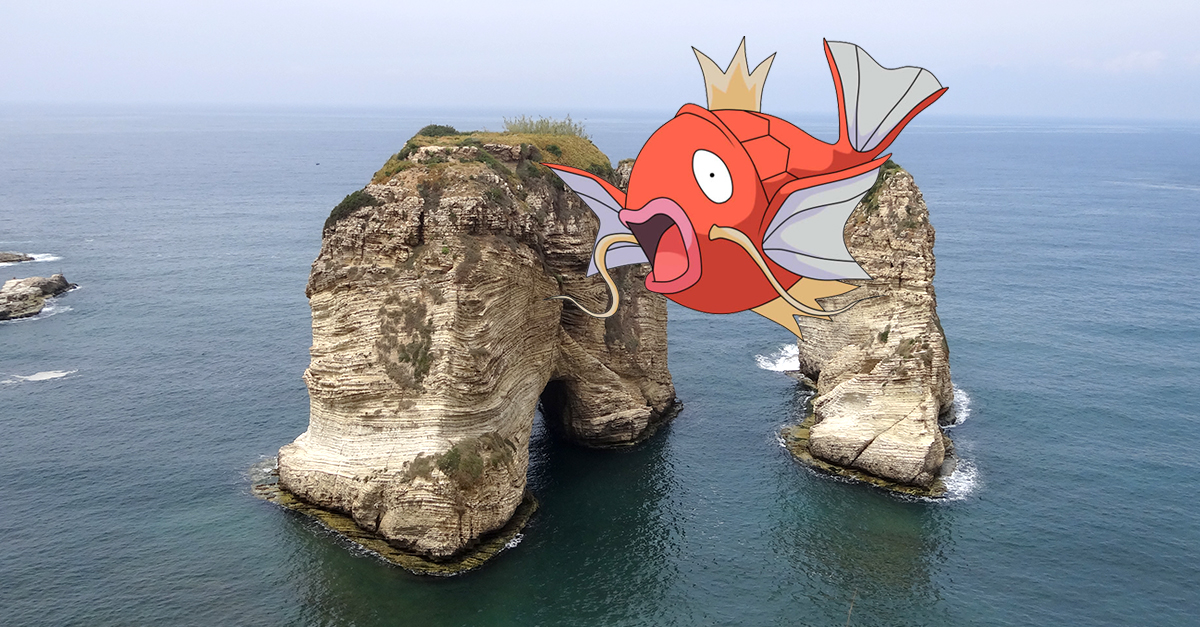If you’ve been on facebook in the past few days, you’ll surely have noticed the launch of Pokémon Go, the latest release by the infamous Niantic. The creature-capturing game offers real life chasing opportunities by using augmented reality technology already available on smartphones. Simply genius!
It truly is a game appealing to large crowd, fun yet beneficial considering that encourages exploring your surroundings, enforcing physical activity and introducing a new form of wildlife/urban photography. Yes, this game makes you walk around your city to catch and collect Pokémon. This unique feature is undoubtedly the major ingredient that made the game an instant success.
As the game has taken Beirut by storm, it is not uncommon to cross paths with strollers chasing imaginary creatures. But to us, landscape architects and urban planners, there is more to this story. Here are five reasons why:
- It makes risking your life fun. Yey! In addition to encouraging walking (an exotic activity for many Beirutis) Pokémon Go may finally make its users realize how literally UNWALKABLE our city is. With a little luck, some Public Servants may be playing the game and will finally unite behind the idea of hiring urban planners to develop SAFE, pedestrian-friendly networks.
- You’ll realize how poor Beirut is in terms of public landmarks. Pokémon Go is very interactive: It’s not just about wandering around waiting to catch creatures, it also allows picking up items at “Pokéstops”. These typically correspond to public spaces or landmarks, two things rarer than the rarest of Pokémons in a city like Beirut. We are so short of landmarks that suddenly Ka’ak Abou Arab is the Pokéstop equivalent of a national park in the US.
- You may look around your phone and take note of the visual pollution. As you move around, you’ll surely notice all the places lacking infrastructure or basic aesthetics. It’s not as easy to ignore them once your Pokémon is unreachable because it’s stuck in those horrific electric cables, is it now?
- You’ll be the most honest user of the game, never cheating by driving around because it’s just faster to walk. When we learned there’s a speed limit built into the game to avoid people using their cars instead of walking, we smirked. The traffic is so bad in Beirut that we felt we’d perform better on foot, and that says a lot already. When will improved vehicular networks be proposed in our beloved city?
- You will develop James Bond level picture taking skills. Beirut is ultra-militarized, and apparently Pokémons like the smell of guns and chicken so they kind of hang out around secured perimeters. You will realize how difficult it is to take pictures or even wave your phone in many areas of the city. When will the militarization of our public realm stop?
Throughout the world, outdoor spaces have shown to have the best profitability ratio. They are not so expensive to create and offer very high returns on investment in terms of quality of life, health and economic generation. In spite of this given, Beirut doesn’t give outdoor spaces the same value and financial support that it gives its buildings and interiors. In that sense, Pokémon Go is a blessing, because we need every single catalyst towards enhanced urban amenities.
Eventually, the hype around the game will end up fading, but it may last long enough to awaken our citizens as to how far behind we are in terms of basic urban amenities. Today, Beirut is just not ready for a game like that, but landscape architects and urban planners are. Their input is key to its development towards a better future.
[/spb_text_block]






